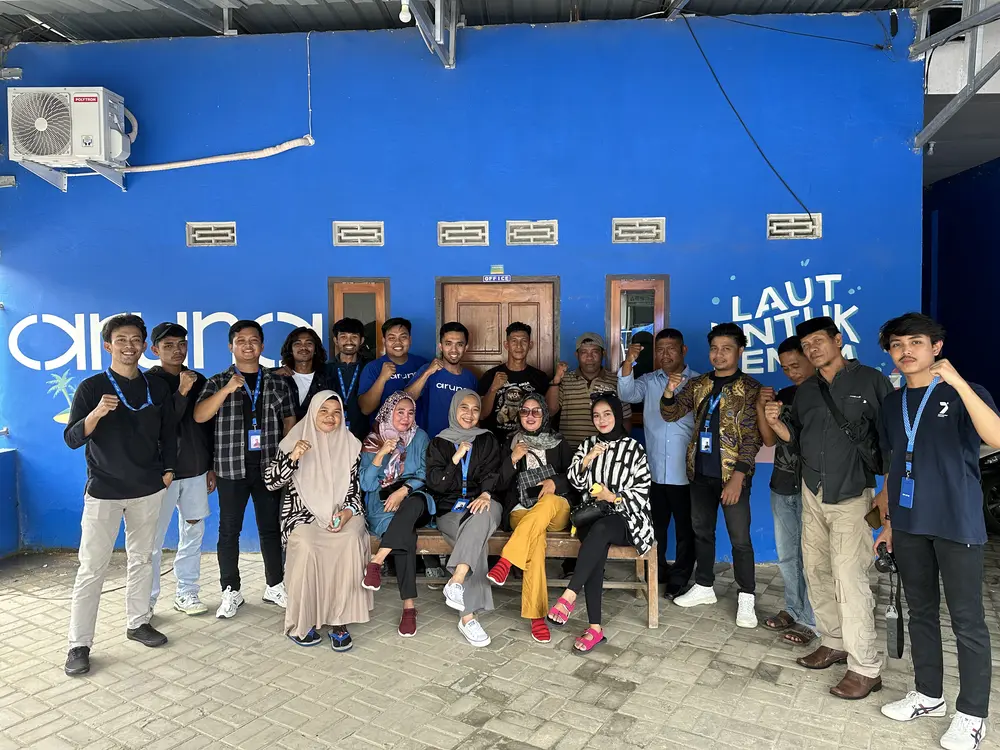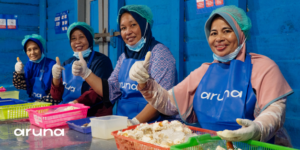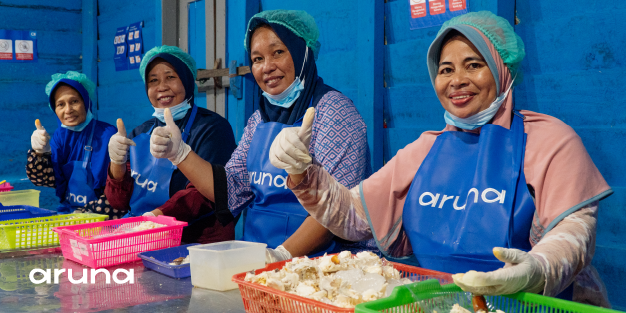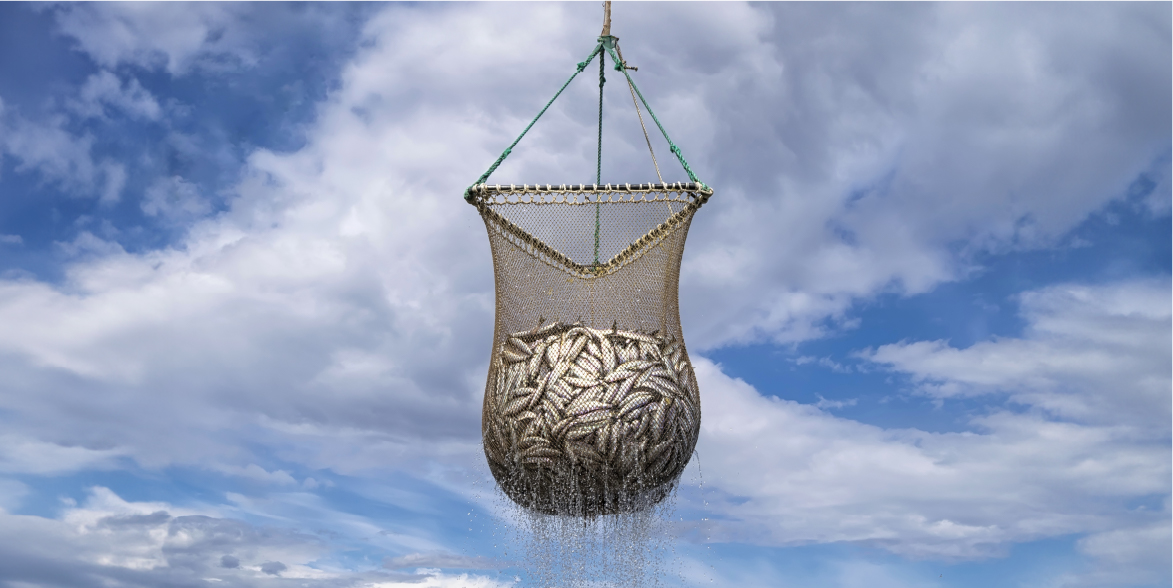Aruna Helped Communities Get Capital from Banks: Financial Accounting was the Main Challenge

Aruna’s relationship with its partners wasn’t limited to transactional business relationships. On February 25, 2024, for example, Aruna held a training for fishing coastal communities that have joined Aruna’s business ecosystem. Held at Aruna Hub in Kendari, Southeast Sulawesi, the training on financial management and cash flow recording brought about the theme of “Building a Business Foundation: Financial Strategy and Management on Blue Swimming Crab”. This training targeted partners who particularly handled crab commodities, given blue swimming crab was one of the products with the highest demand in Aruna.
Reflecting on coastal communities in Tanjung Batu, East Kalimantan, who welcomed this kind of financial education through regular collective savings initiatives, Aruna was then encouraged to do the same in Kendari. On this occasion, the objective was not only to activate the habit of saving, but also to educate Aruna’s partners on the right way to get access to loans or additional capital from banks. Head of the Trade, Cooperatives and MSMEs Office of Kendari city, Alda Kesutan Lapae, affirmed, “The main key when discussing any matter with banks is trust. How can banks give us their trust.”
Also inviting a local financial practitioner, Laode Rakhmad Darmawan, he mentioned that there were at least three types of important financial statements that needed to be regularly recorded in order to gain easier access to applications for capital and People’s Business Credit (Kredit Usaha Rakyat/KUR) from the government. “First, the income statement. This report shows the difference between fish sales and purchase revenue, plus the operational costs. Second, a balance sheet report that shows the amount of assets or wealth, and liabilities or debts at a given time. There is also a cash flow statement that shows the income and the outcome of your business,” he explained.
Hasbi Tawa, Area Manager in Southeast Sulawesi, said, “During the process here, we receive aspirations from many communities that we foster regarding the possible support in the form of capital. Meanwhile, most of these Aruna-assisted communities cannot pass administratively, so cannot get access to capital loans. In response to this, Aruna’s Community Development conducted an assessment. We then found that unsystematic cashflow recording was the issue, so the profitability of the business could not be read.”
Utari Octavianty, Co-Founder and Chief Sustainability Officer of Aruna, added, “With education and continuous guidance post-event, we want to ensure that our partners can get access to loans and/or additional capital from banks. This cash flow problem, we are optimistic, is something that can be addressed through educational agendas. Our Community Development Area together with Local Heroes also constantly approach Aruna’s partners. The goal is for them to really understand our objectives in organizing such events.”










Leave a reply
No comments found.